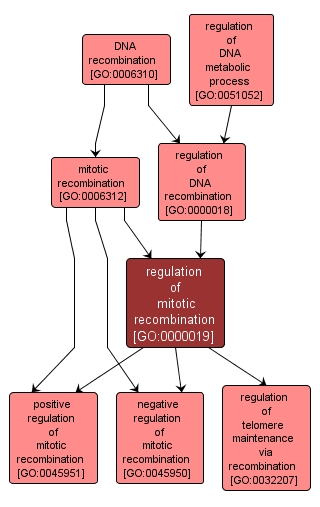GO TERM SUMMARY
|
| Name: |
regulation of mitotic recombination |
| Acc: |
GO:0000019 |
| Aspect: |
Biological Process |
| Desc: |
Any process that modulates the frequency, rate or extent of DNA recombination during mitosis. |
Synonyms:
- regulation of recombination within rDNA repeats
|
|

|
INTERACTIVE GO GRAPH
|














